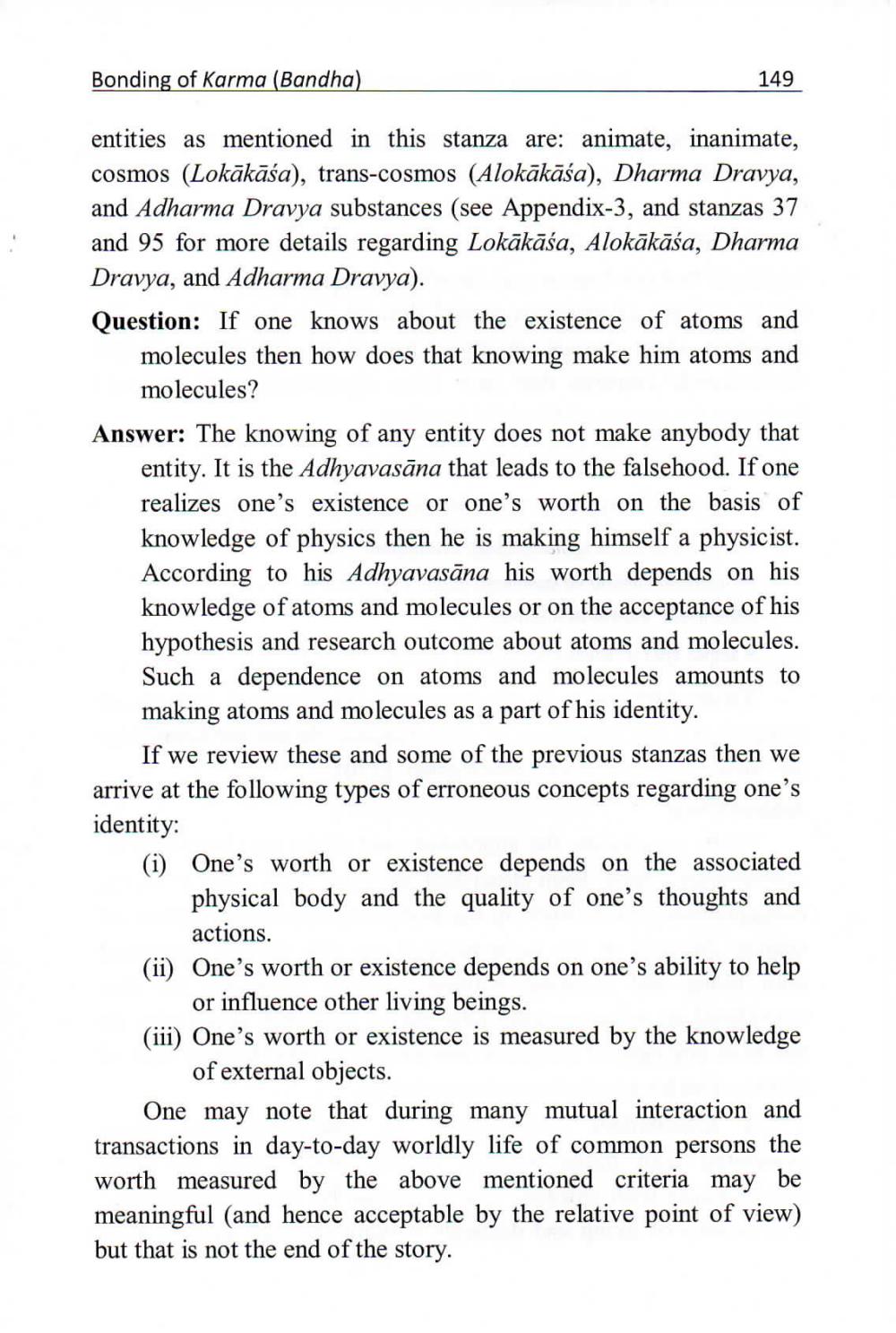________________
Bonding of Karma (Bandha)
149
entities as mentioned in this stanza are: animate, inanimate, cosmos (Lokākāśa), trans-cosmos (Alokākāśa), Dharma Dravya, and Adharma Dravya substances (see Appendix-3, and stanzas 37 and 95 for more details regarding Lokākāśa, Alokākāśa, Dharma Dravya, and Adharma Dravya). Question: If one knows about the existence of atoms and
molecules then how does that knowing make him atoms and
molecules? Answer: The knowing of any entity does not make anybody that
entity. It is the Adhyavasāna that leads to the falsehood. If one realizes one's existence or one's worth on the basis of knowledge of physics then he is making himself a physicist. According to his Adhyavasāna his worth depends on his knowledge of atoms and molecules or on the acceptance of his hypothesis and research outcome about atoms and molecules. Such a dependence on atoms and molecules amounts to making atoms and molecules as a part of his identity.
If we review these and some of the previous stanzas then we arrive at the following types of erroneous concepts regarding one's identity: (i) One's worth or existence depends on the associated
physical body and the quality of one's thoughts and
actions. (ii) One's worth or existence depends on one's ability to help
or influence other living beings. (iii) One's worth or existence is measured by the knowledge
of external objects. One may note that during many mutual interaction and transactions in day-to-day worldly life of common persons the worth measured by the above mentioned criteria may be meaningful (and hence acceptable by the relative point of view) but that is not the end of the story.




